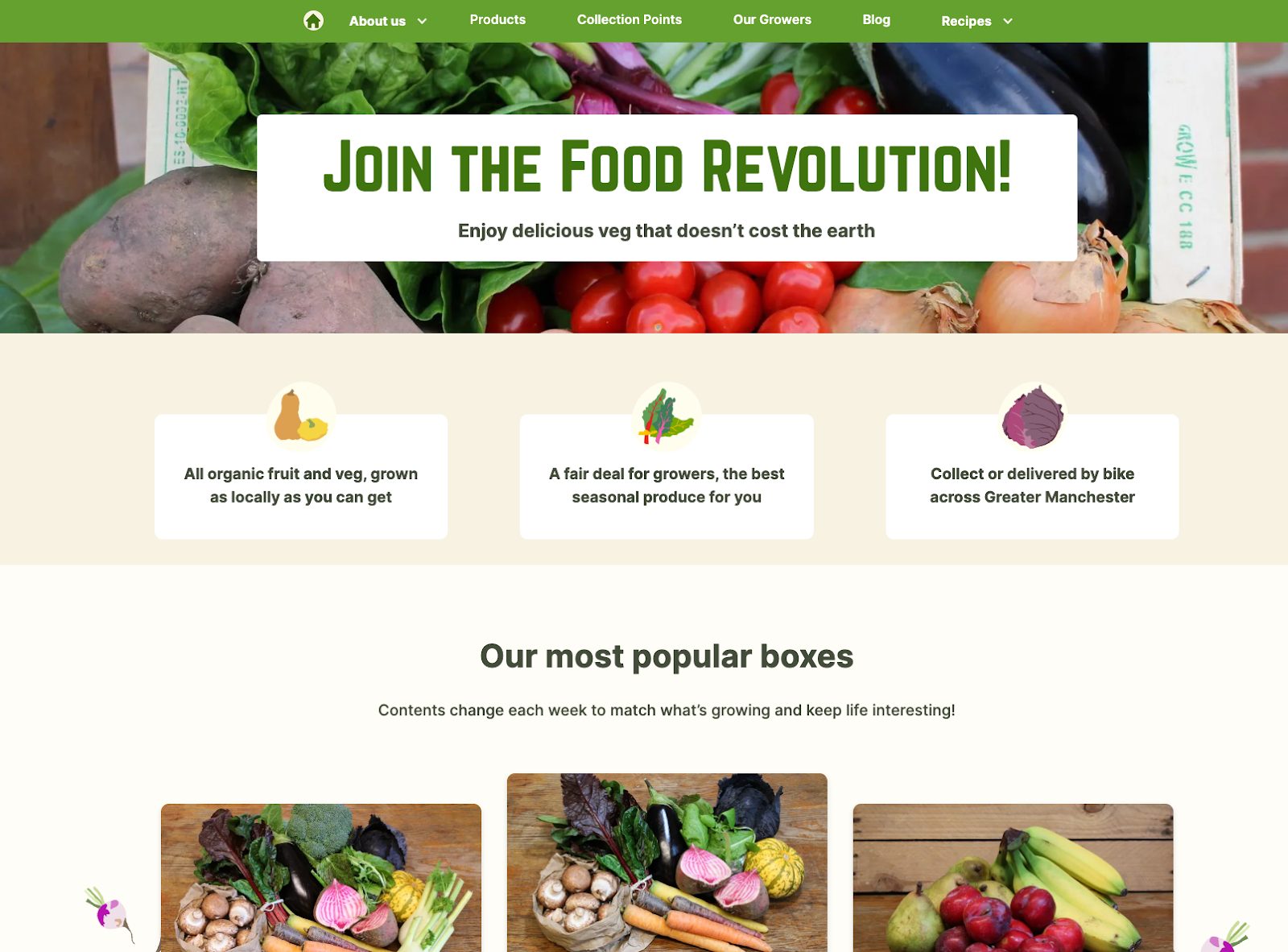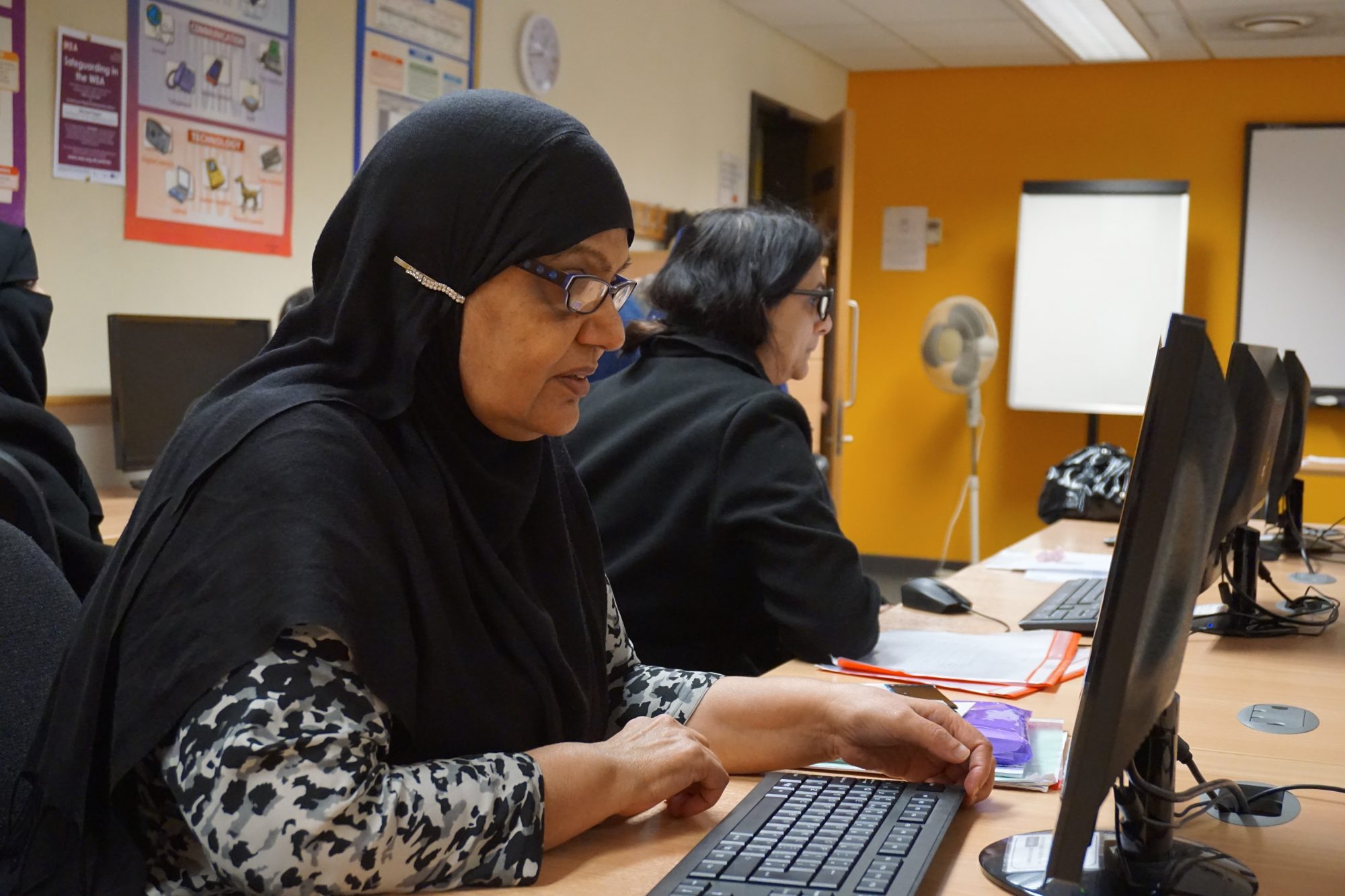
Simon Borkin
Powering Up Connector

Sona Mahtani
Powering Up Connector
Running from 2021 to 2024, Powering Up distinguished itself by offering tailored support packages that included technical expertise, professional development, and flexible funding. The programme was structured around two core streams: digital development and climate action. Each stream provided bespoke support valued at the equivalent of £20,000 responding directly to the specific challenges faced by community businesses, enabling them to build resilience, adaptability, and sustainability.
Hybrid models of digital transformation
Over 20 organisations went through the digital stream of the programme in which a common form of digital intervention started to emerge – an innovative hybrid model that combined the simplicity and accessibility of no-code digital tools with expert professional guidance. This hybrid approach enabled community businesses to develop effective, tailored digital solutions without the high costs and complexities typically associated with custom-built technology. Crucially, this model also emphasised skill-building and internal capacity development, ensuring participating organisations could maintain and adapt their digital tools independently over time.
The hybrid model of digital development emerged in contrast to more established approaches of custom-built solutions and off-the-shelf digital packages. Each of these came with distinct advantages and challenges. Custom solutions, although fully tailored and highly flexible, presented significant financial and logistical hurdles for most community businesses. Off-the-shelf software offered quick implementation and reliability, but often lacked the flexibility to fully address unique organisational needs. No-code solutions emerged as an effective middle ground, offering user-friendly platforms capable of meeting specific needs without requiring extensive technical skills or financial investment.
This hybrid digital model was brought to life through practical case studies from community businesses participating in the Powering Up programme. Veg Box People, a community-based organic produce scheme in Greater Manchester, worked with digital experts Purple Banana to create a vibrant and user-friendly marketing website using Webflow, a popular no-code platform. This project not only resolved longstanding technical and maintenance issues but empowered Veg Box People to fully manage and adapt their digital presence moving forward. The close collaboration between Veg Box People and Purple Banana exemplified the programme’s core principles, including simplicity, collaboration, and capability building within the community business.

Similarly, Thamesmead Arts and Culture Office (TACO!) significantly enhanced their community radio operations through digital automation, utilising Airtable in partnership with SaaSy Software. Prior to this digital transformation, TACO! faced considerable challenges managing volunteer contributions and content workflows, which often resulted in inefficiencies and errors. By adopting Airtable as a centralised no-code hub integrated with their existing CMS, TACO! streamlined data management, reduced manual effort, and improved consistency across their operations. Crucially, this digital solution freed up organisational resources, allowing staff and volunteers to focus more on creative programming and community engagement, thereby significantly amplifying their local impact.
Environmental and Management Solutions (EMS) Ltd similarly leveraged Powering Up’s digital stream to transition from unwieldy spreadsheets to a bespoke CRM system developed using Microsoft PowerApps. Partnering with JMK & Co, EMS built an integrated system that enhanced their ability to track support, donations, and community interactions in real-time. This transition not only reduced administrative burdens but also greatly improved the accuracy and effectiveness of their reporting, empowering EMS to communicate more effectively with stakeholders and make informed, strategic decisions.
Central to Powering Up’s digital stream was the role of the Community Business Connector, a dedicated independent adviser who guided organisations through the discovery and implementation processes. This unique approach ensured that community businesses received unbiased, tailored advice directly aligned with their strategic goals rather than commercial interests. Furthermore, the structured support provided—comprising technical assistance, professional development, and flexible grants—enabled organisations to deeply engage with their digital transformation projects, resulting in more sustainable and impactful outcomes.
Overall, the digital stream of Powering Up has demonstrated significant potential in transforming community businesses by equipping them with effective, adaptable digital tools and embedding essential digital skills within their teams. This hybrid approach, combining expert support with accessible no-code technologies, has provided a valuable blueprint for community organisations seeking practical solutions to their digital challenges.
For community businesses looking to explore this hybrid approach in more detail, a comprehensive guide titled ‘No-code but not alone’ is available. It provides practical insights, detailed case studies, and clear recommendations on successfully adopting digital tools to enhance organisational resilience and sustainability.
Embedding climate practices in community business
Exploring your organisational next steps in climate action
If you’re wondering where to begin with climate action in your community organisation—or are just keen to explore what actions others have taken — then this blog offers a route map. We invite you to view the stories from the Powering Up programme and have shared a practical tool you can use to assess and prioritise your next steps.
Common priorities, shared challenges
The Powering Up programme supported 27 community businesses spread across England, with the characteristic diversity of business models amongst them – as community hubs, farms, cafés, cultural spaces, and learning centres. When surveyed about their key climate interests:
- 61% focused on community buildings, often dealing with old or energy-inefficient spaces.
- 56% prioritised energy efficiency and controlling energy costs.
- Other recurring themes included mental health and wellbeing (22%), the natural environment (22%), food systems (17%), and waste reduction (17%).
From the outset, most participants were seeking support with:
- Strategy and direction (71%)
- Skills development (65%)
- Leadership capacity (47%)
- Funding (35%)
- Decision-making tools, engagement methods, and infrastructure knowledge (all around 29%)
If these priorities sound familiar, you’re not alone. Many organisations felt under-equipped but were determined to act. Whether it was understanding retrofitting, improving recycling, or shifting organisational culture, they wanted support that was flexible, practical, and values-driven.
What did they learn and change?
Over the course of the programme:
- Confidence in leadership, strategy, and sustainability planning significantly increased.
- Knowledge in funding, data systems, and infrastructure policy also grew.
- 5% used the flexible grant to cover staff time so they could properly participate.
- 69% delivered actual climate actions—like audits, engagement events, retrofit studies, and action plans.
Some organisations made huge strides: from transforming into a land trust to applying for (and winning) £126k in energy efficiency grants. Others appreciated how the programme gave them room to plan properly, experiment, and access coaching or community expertise.
Practical approaches to sustainability
We’ve organised the stories from seven organisations into five common questions that community organisations often ask:
🌍 How can we improve energy efficiency in a heritage or restricted building?
- Rotunda Community Centre explored sustainable retrofitting of its Grade II listed site and boosted carbon literacy across its team.
- BS3 Community Development tackled heating and cooling across both Victorian and newer buildings, developing a comprehensive retrofit plan involving solar film, heat pumps, and electrification.
📚 What steps can we take to work with and engage our community in sustainable practices?
- Deeplish Community Centre focused on waste and recycling, climate literacy, and delivering green actions co-designed with their community.
- KataKata Community Café hosted creative events to promote water and energy conservation, embedding climate awareness in its cultural offer.
💡 How can we conduct a carbon audit and use the insights to develop actionable strategies?
- Windmill Hill City Farm carried out a carbon audit, then created a phased action plan that included district heating.
- BS3 combined audit insights with practical planning for a shift to electric and low-carbon systems.
- Lauriston Farm transitioned into a community land trust and integrated carbon audit results into its leadership and long-term sustainability strategy.
💰 How can we start a climate action plan with limited resources?
- KataKata used flexible funding to focus on long-term planning despite tight budgets.
- Windmill Hill City Farm took a phased approach—starting small, using audits to guide future work, and building internal momentum.
💼 What are effective ways to access support and resources?
- Deeplish used coaching and funding to build a local action plan and community relationships.
- BS3 partnered with local retrofit experts and shared learning across networks.
- Lauriston Farm brought in a facilitator to rethink its structure and embed sustainability into governance.

To support your own journey, you can use the Sustainability Mapping Spider Diagram, a simple but powerful tool to:
- Reflect on what your organisation is doing across key climate areas—like energy, transport, food, waste, and procurement.
- Identify the areas of greatest environmental impact and importance to your community.
- Map your team’s skills and capacities.
- Pinpoint where to focus your next steps.
You can use this as a staff workshop tool, a board development session, or even to track progress over time.
What community businesses said:
“This programme probably saved our project.”
“It gave us confidence to act and move forward.”
“It was invaluable support—for the organisation and for me as a leader.”
While 47% of respondents said they had a clear climate plan and now needed funding to make it real, another 35% had already started implementing actions. A smaller group (12%) had completed their plans and were in a strong position to do more.
A final word: Start where you are
The message from the Powering Up Programme is simple: you don’t need to be an expert to take climate action. You just need to start.
Use the Sustainability Mapping tool to figure out what matters most. Learning from others progress and mistakes can generate the insight you need to get going. And trust that small, meaningful steps—when repeated and shared—can lead to major impact.
We are hoping that these case studies and guides can enable you to start where you are and make progress in meaningful ways in your organisational context.



